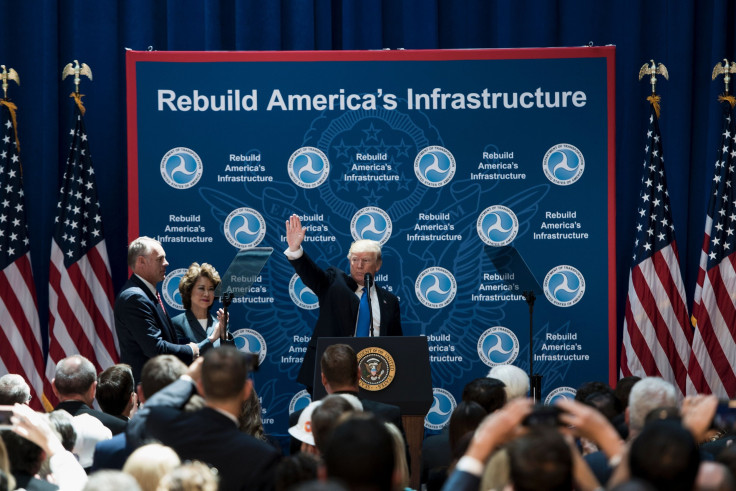US Economy: Democrats, Republicans May Have Bipartisan Support For Improving Infrastructure

Commerce Secretary Wilbur Ross on Tuesday said that a continued strong economy depends on improved infrastructure, an issue that requires increased federal spending.
“Corporate earnings certainly have been very, very strong — there’s no question about that. And it’s also no question that market’s job is to look ahead,” Ross said in an interview at the Yahoo Finance All Markets Summit in Washington. “I think a lot will have to do with whether infrastructure gets the kind of treatment that it really deserves.”
Officials agree that one area where Democrats and Republicans may have bipartisan support is improving America’s infrastructure, such as repairing bridges, roads and airports. Since President Trump announced his candidacy in 2015, he has criticized the country's “horrible infrastructure problems.”
In March, Senate Democrats proposed a $1.022 trillion infrastructure plan paid for by repealing some Republican tax cuts. The plan would create 15 million jobs.
In a White House press conference on Nov. 7, Trump said he’s hoping to work with Democrats and Congress on strengthening infrastructure.
“We have a lot of things in common on infrastructure,” Trump said. “There are a lot of great things we could do together.”
Senate Majority Leader Mitch McConnell said last week that he and Democratic House Rep. Nancy Pelosi had discussed bipartisanship on infrastructure.
"The only issue that Leader Pelosi and I discussed, where there could be a possible bipartisan agreement, is something on infrastructure," McConnell said.
Sean Darby, Jefferies LLC's Global Head of Equity Strategy and Chief Global Equity Strategist, emphasized infrastructure as a way to bolster the economy.
"This is a logical time to address the many U.S. infrastructure deficiencies that have become an impediment to a variety of economic activities in the U.S., not notably transportation. Public spending on infrastructure (transportation and water) as a share of GDP is near all-time lows (2.3 percent). Higher infrastructure spending would help U.S. competitiveness and the associated jobs created would also help the economy," Darby wrote in a note Monday.
White House economic advisor Larry Kudlow has also called for a multifaceted infrastructure plan.
"I’d like to do energy infrastructure. I’d like to do pipeline,” Kudlow said Tuesday on CNBC's "Squawk on the Street."
“I’d like to do anything that will help LNG, terminals, shipping. We’d like to revise the U.S. shipping industry, which has been dormant for many years. We’d like to export oil, natural gas to Europe and to Asia.”
When asked if the prospect of weak corporate earnings will drag down the economy, Ross noted that the only real obstacle to passing an infrastructure bill is government funding.
"As you know, the president is very keen to have an infrastructure program, and the only real issue is how do you pay for it. How much does the federal government do, how much is done by the private sector,” Ross said.
© Copyright IBTimes 2025. All rights reserved.





















